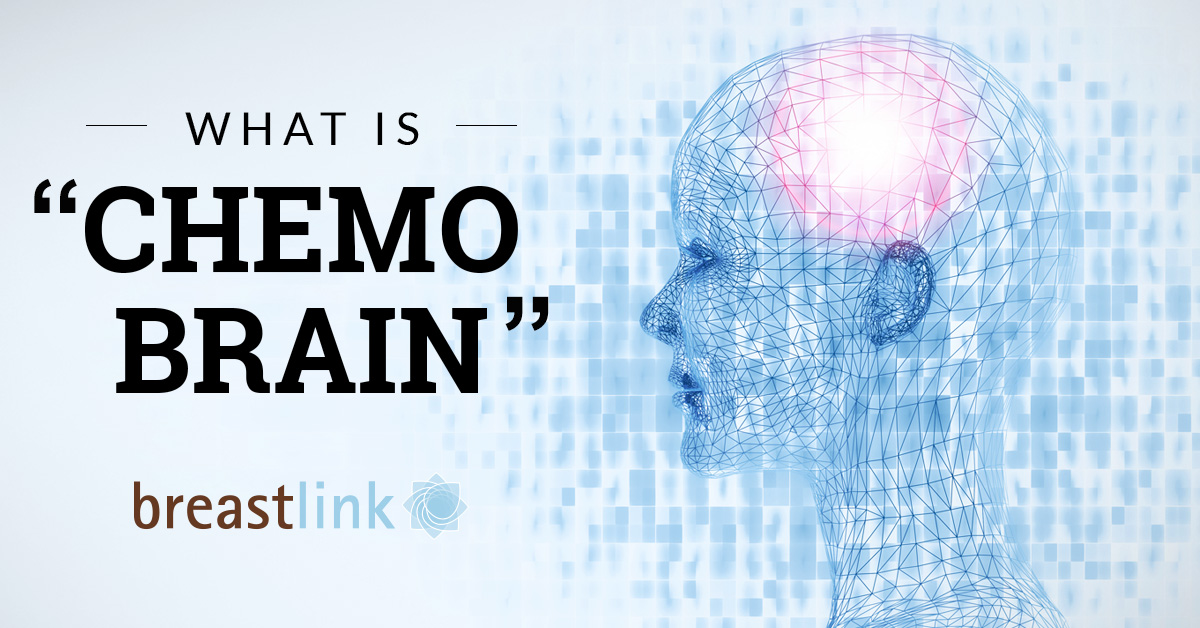“Chemo brain” is a side effect of cancer treatment. It mostly affects patients who receive chemotherapy, but it can affect other cancer patients as well. Patients describe it as a “fog” that makes it hard to think clearly. Fortunately, “chemo brain” only affects patients while they’re being treated for cancer. Symptoms appear when treatment starts and fades after it’s finished. Though sometimes these symptoms can linger for several months or several years following treatment, most patients make a full recovery and suffer no or very minimal long-term side effects.
What are the Symptoms of “Chemo Brain?”
“Chemo brain” impairs your ability to think. Some of the most common symptoms are:
- Difficulty recalling familiar subjects, difficulty recalling familiar images, difficulty remembering conversations, and difficulty remembering recent events.
- Difficulty concentrating. Patients have a shortened attention span, are easily distracted, and have trouble staying focused on a single task.
- Difficulty conversing. Patients have trouble completing sentences or finding the right words to express themselves.
- Difficulty thinking. Patients take longer to form thoughts or finish familiar tasks.
- Patients misplace personal belongings or confuse dates and times.
Symptoms of “chemo brain” are often mild, so mild that family and friends don’t realize there’s a problem. Patients should monitor their condition while receiving cancer treatment. Any symptoms should be reported to your doctor, so you can work together to find a way to cope.
What Causes “Chemo Brain?”
The cause of “chemo brain” is still uncertain. Not every patient who has chemotherapy gets “chemo brain” and not every patient who gets “chemo brain” has chemotherapy. These side effects often arise from hormonal antiestrogen therapy such as Tamoxifen or aromatase inhibitors. Some researchers think cancer therapy may alter or accelerate the brain’s aging process, creating problems that wouldn’t have appeared for several years. Other treatments known to induce cognitive dysfunction are:
- Radiation therapy
- Immunotherapy
- Surgical Drugs (e.g. Anesthesia)
Another cause may be the cancer itself. Cancer is a complex disease, with many side effects that could affect your memory, such as:
- Low Blood Count
- Fatigue
- Trouble Sleeping
- Infections
- Nutritional Deficiencies, Often Caused by Nausea
- Hormonal Changes
Cancer patients are under enormous stress, which may also interfere with cognition. They’re also prone to depression, which may interfere as well. Certain types of patients seem to be more at risk than others, patients who:
- Have Brain Cancer
- Are Given Chemotherapy Straight to Their Central Nervous System
- Are Given Brain Radiation Therapy
- Are Given Chemotherapy and Whole-Brain Radiation Therapy
- Are Given High Doses of Chemotherapy and Radiation
- Are Very Young
- Are Elderly
A study that tracked a group of cancer patients before chemotherapy, three weeks after chemotherapy, and one year after chemotherapy found that 61 percent of them suffered some sort of mental decline. When they followed up a year later, half of the affected patients had improved, while the remainder (about 30 percent of the original group) had not, though their mental problems had stabilized.
How Do You Cope with “Chemo Brain?”
“Chemo brain” can be very frustrating. If it’s affecting you, try these techniques, which doctors have shown improve memory and cognition.
- Keep track of your schedule with a daily planner, pocket calendar, or your Smartphone. You can also use it to set reminders and create to do lists. It’s a great way to organize phone numbers, emails, and addresses as well.
- Perform mental exercise. Crosswords, Sudoku, and other mental games strengthen synapses, which help you think better. Taking up a new hobby, teaching yourself a new skill, or studying a new language works too. If you don’t have time for a language class, try a language app on your Smartphone, tablet, or computer. Other computer programs use repetitive mental exercises to improve your brain’s performance.
- Perform physical exercise. Exercise increases oxygen circulation in your brain, which improves brain function and helps repair damaged synapses. Studies have shown that it improves cognition in children and adults. If you don’t have the energy for jogging or cycling, try walking. Even small amounts of exercise are helpful.
- Eat vegetables. Studies have shown that people who eat more vegetables have fewer mental problems as they get older.
- Get a full night’s sleep. Fatigue not only causes mental problems, it also exacerbates them.
- Focus on one task at a time. People today are encouraged to multitask as much as possible, but this can be detrimental to people with “chemo brain.” Remove as many distractions from your environment as possible and try to focus only on a single task while you’re working.
- Develop a routine. Routines make it easy to remember what you’re doing every day. Post a copy of your routine somewhere conspicuous, like your bedroom door, to help you remember. Create a set space for your belongings. That way, you won’t have trouble remembering where you’ve put them.
- Ask for help. Telling your doctors, nurses, friends, and family about your problems makes it easier for them to accommodate your condition and step in when you’re feeling frustrated or having a bad day.
- Keep track of your symptoms. Makes notes whenever you feel foggy or forgetful. It may reveal patterns that will help you cope. For example, if your symptoms are worse when you’re hungry, schedule important tasks after meal times, when you’re at your best.
- Find ways to relax. Doctors are becoming increasingly interested in the benefits of focused relaxation exercises as a way to combat attention disorders. These exercises teach you how to concentrate your attention in order to manage your emotions and your brain. They’re still studying their effect on cancer patients, but they do know that stress exacerbates mental problems, so set aside time to relax. If meditation and breathing exercises aren’t for you, try listening to music, laughing at a funny movie, or chatting with your friends. They’re all great ways to lower stress.
There are no drugs specifically designed for “chemo brain,” but drugs designed for other illnesses, like Alzheimer’s and ADHD, may help. If your symptoms become worse, the most important thing is speak up and be an advocate for your own health. Breastlink doctors and nurses are there to help you through every stage of cancer treatment, including “chemo brain.” Tell us what you’re going through and we’ll find a way to help.




Add new comment